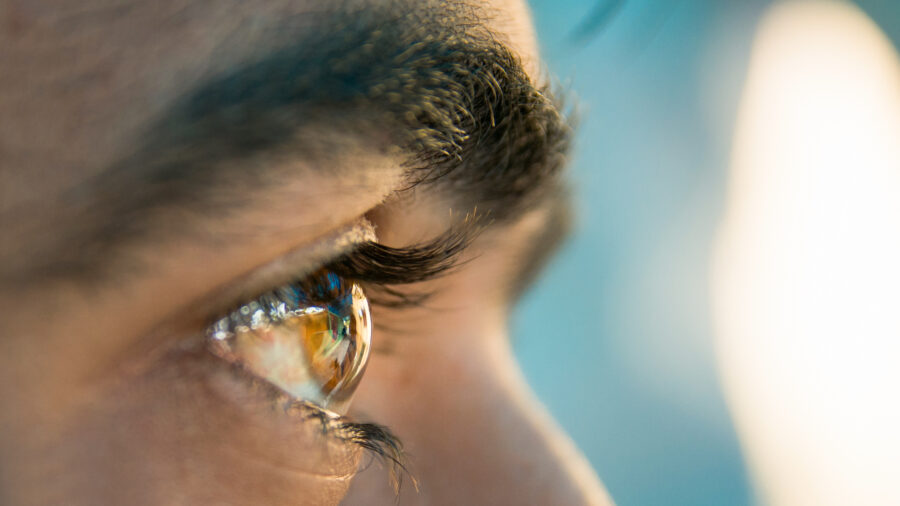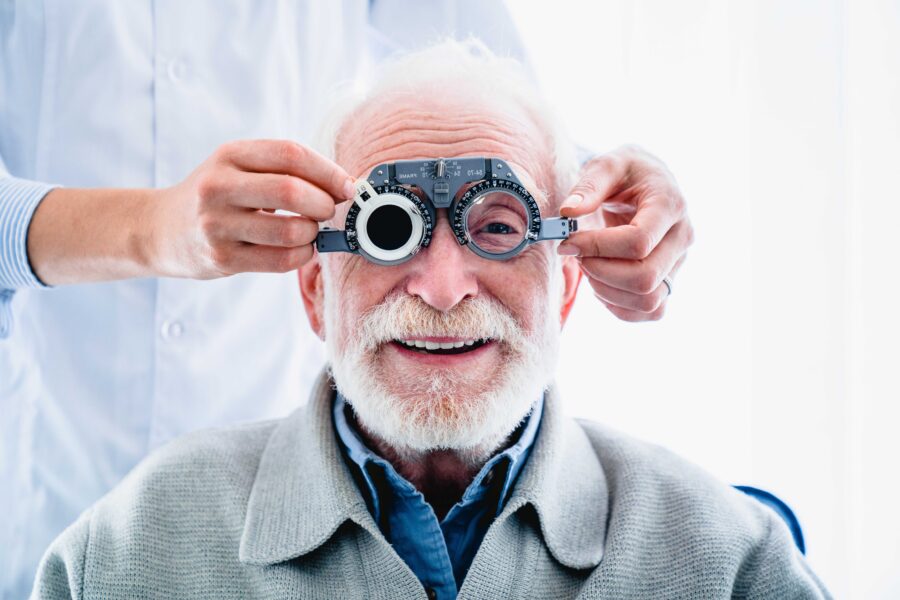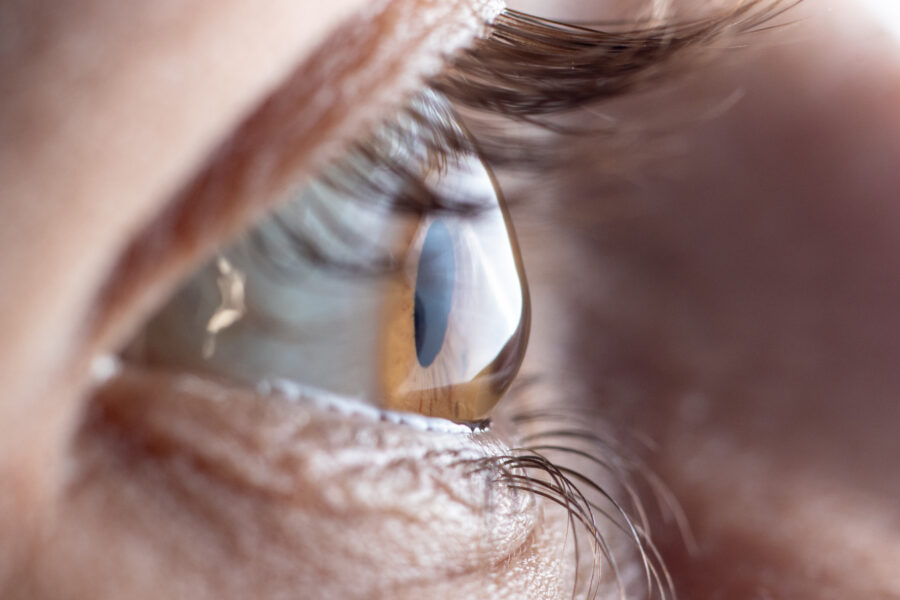Blog post
Refractive Errors: Types, Treatments and Causes

Matthew Burford BSc(Hons) Optometry MCOptom - Domiciliary Optician and Professional Services Manager at OutsideClinic
Did you know that uncorrected refractive errors are a leading cause of visual impairment globally, affecting both children and adults?
What are refractive errors?
Refractive errors occur when the shape or size of your eye prevents light from focusing directly on the retina. This incorrect focus can cause blurry or strained vision, as your brain works harder to process unclear information.

What are the types of refractive errors?
Refractive errors fall into four main categories:
- Myopia (short-sightedness): Difficulty seeing objects far away.
- Hyperopia (long-sightedness): Difficulty seeing objects up close.
- Astigmatism: Blurred or distorted vision at all distances due to irregular corneal or lens shape.
- Presbyopia: Difficulty focusing on close objects, typically developing after the age of 40.
Are cataracts a refractive error?
No, cataracts are not refractive errors. They involve the clouding of the eye’s lens, which impacts vision in a different way.
Is keratoconus a refractive error?
While keratoconus affects vision, it is not classified as a refractive error. It is a progressive condition where the cornea thins and bulges into a cone-like shape, often requiring specialised treatments.
What causes refractive errors?
Refractive errors are often caused by variations in the shape of the eye, the curvature of the cornea or the lens's flexibility. Common contributing factors include:
- Genetics: A family history of refractive errors increases the likelihood of developing one.
- Age: Conditions like presbyopia develop naturally with age.
- Eye injuries or surgeries: These can alter the shape or clarity of the eye’s structures. It is common to experience refractive changes after cataract surgery.
- Health conditions: Certain medical conditions like diabetes can contribute to changes in vision.
What are the symptoms of refractive errors?
Symptoms vary but may include:
- Blurry vision at various distances.
- Eye strain or fatigue.
- Headaches from prolonged focus.
- Squinting to improve clarity.
It’s important to remember that these symptoms can overlap with other eye or health conditions. Regular eye tests can help identify the root cause.

How are refractive errors diagnosed?
Refractive errors are diagnosed during a comprehensive eye exam, which may include:
- Visual acuity test: Measuring how well you can see letters or symbols at a distance.
- Refraction assessment: Determining the appropriate lens power for clear vision.
How to treat refractive errors
Treatment options include:
- Glasses: The most common and straightforward solution.
- Contact lenses: Offering clear vision without the need for frames.
- Refractive surgery: Procedures like LASIK reshape the cornea to correct vision.
Uncorrected refractive errors, such as wearing outdated prescriptions, can lead to ongoing issues. It’s vital to keep your prescriptions updated and use corrective lenses as recommended.
Can refractive error be cured naturally?
While certain lifestyle changes, like reducing eye strain and maintaining overall eye health, can help manage symptoms, refractive errors cannot be cured naturally.
Treatments like glasses, contacts or surgery are necessary to correct the condition.

How to prevent refractive errors
There is growing evidence that myopia control in children can help to slow the progression of short-sightedness in children. Myopia control involves using specialised treatments, such as glasses, contact lenses, eye drops or lifestyle changes.
Other than that, refractive errors often cannot be entirely prevented, but you can maintain overall good eye health by:
- Taking regular screen breaks to reduce eye strain.
- Wearing sunglasses to protect against UV damage.
- Eating a balanced diet rich in vitamins A, C and E.
- Scheduling regular eye tests to monitor changes in vision.
Can refractive error happen suddenly?
Most refractive errors develop gradually, but sudden changes in vision may occur due to:
- Eye injuries.
- Health conditions like diabetes.
- Post-surgical changes, such as after cataract surgery.
If you experience a sudden change in vision, consult your optician immediately.
Can refractive error cause blindness?
While refractive errors themselves do not cause blindness, uncorrected errors can lead to blurred or reduced vision, making it harder to perform everyday tasks such as reading, recognising faces or navigating environments safely.
Is refractive error permanent?
Refractive errors are typically permanent unless corrected with glasses, contact lenses or surgery.
Presbyopia, in particular, is a lifelong condition once it develops.
Why regular sight tests are essential
Regular sight tests ensure your prescription is up-to-date and can detect other eye health issues early. By addressing refractive errors promptly, you can enjoy clear vision and maintain your quality of life.
At OutsideClinic, we offer comprehensive home eye tests for those who find it difficult to attend an Optician. If you qualify, NHS funding may cover the cost, ensuring accessibility for everyone who cannot easily visit their usual optician without assistance.


By Matthew Burford BSc(Hons) Optometry MCOptom - Domiciliary Optician and Professional Services Manager at OutsideClinic
Matthew graduated from Aston University in 2004 with a degree in Optometry.



